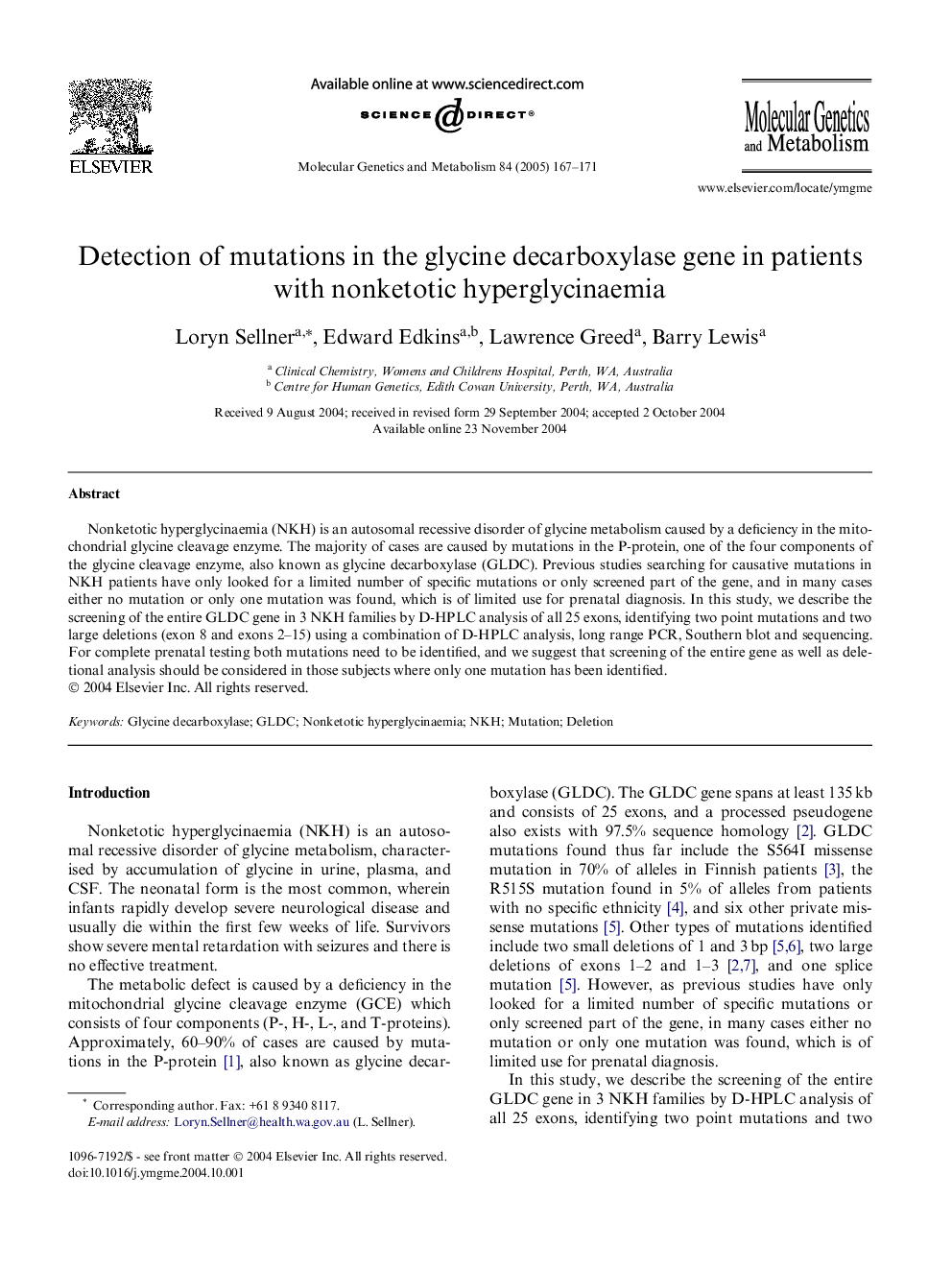| Article ID | Journal | Published Year | Pages | File Type |
|---|---|---|---|---|
| 10834208 | Molecular Genetics and Metabolism | 2005 | 5 Pages |
Abstract
Nonketotic hyperglycinaemia (NKH) is an autosomal recessive disorder of glycine metabolism caused by a deficiency in the mitochondrial glycine cleavage enzyme. The majority of cases are caused by mutations in the P-protein, one of the four components of the glycine cleavage enzyme, also known as glycine decarboxylase (GLDC). Previous studies searching for causative mutations in NKH patients have only looked for a limited number of specific mutations or only screened part of the gene, and in many cases either no mutation or only one mutation was found, which is of limited use for prenatal diagnosis. In this study, we describe the screening of the entire GLDC gene in 3 NKH families by D-HPLC analysis of all 25 exons, identifying two point mutations and two large deletions (exon 8 and exons 2-15) using a combination of D-HPLC analysis, long range PCR, Southern blot and sequencing. For complete prenatal testing both mutations need to be identified, and we suggest that screening of the entire gene as well as deletional analysis should be considered in those subjects where only one mutation has been identified.
Related Topics
Life Sciences
Biochemistry, Genetics and Molecular Biology
Biochemistry
Authors
Loryn Sellner, Edward Edkins, Lawrence Greed, Barry Lewis,
